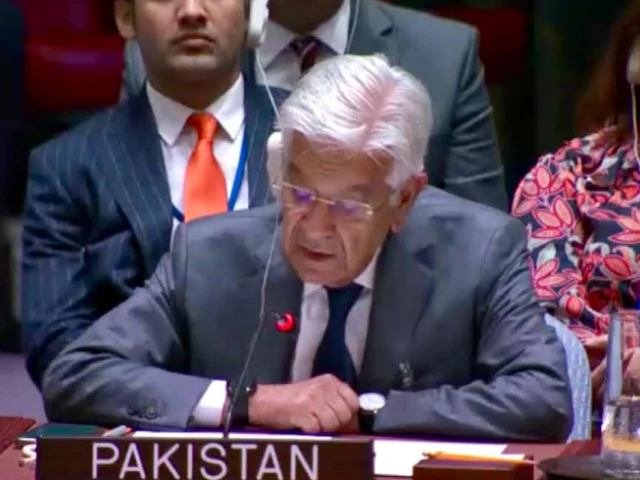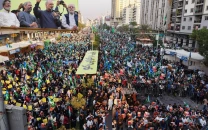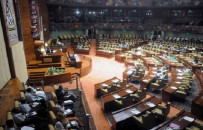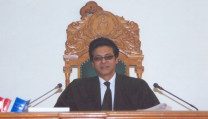Pakistan calls for UN-guided AI to ensure global stability
Security Council session held on margins of the UN General Assembly’s 80th high-level week

Defence Minister Khawaja Asif has called for Artificial Intelligence governance to be anchored within the framework and legitimacy of the United Nations, emphasizing that AI must be harnessed to promote international peace and development.
Speaking at the UN Security Council High-Level Open Debate on Artificial Intelligence (AI) and International Peace and Security, He warned that unregulated AI, particularly in military applications, could destabilize global security. “AI must not become a tool of coercion, or technological monopoly,” he said, adding that “applications without meaningful human control should be prohibited.”
Highlighting the dual-use nature of AI, the defence minister described it as “the most consequential technology, capable of accelerating socio-economic progress, but equally capable of deepening inequalities and destabilizing international order.”
Read: Nvidia to invest $100b in OpenAI, provide data center chips in major AI partnership
Asif cited recent tensions between India and Pakistan, noting that autonomous munitions and high-speed dual-capable cruise missiles were reportedly used for the first time between nuclear-armed states, underscoring the dangers AI can pose in conflict.
Statement by H.E. Khwaja Muhammad Asif,
— Permanent Mission of Pakistan to the UN (@PakistanUN_NY) September 24, 2025
Minister for Defence at the Security Council High-Level Open Debate on “Artificial Intelligence and International Peace and Security: Addressing the Complexities, Multifaceted Impacts and Responsible Use”
(24 September 2025)
*********
Mr.… pic.twitter.com/MXfqsNWi8k
Asif emphasised that states must adopt measures to prevent destabilizing use of AI while providing pre-emptive incentives to ensure responsible development.
“The Charter of the United Nations and international law must fully govern the development and use of AI applications,” he said, stressing that developing countries must have capacity, access, and a voice in shaping global AI governance.
He warned that AI lowers the threshold for conflict by compressing decision-making timelines, blurring cyber, kinetic, and informational domains, and making wars more politically and operationally feasible. “We must ensure that AI is harnessed to promote peace and development, not conflict and instability,” he said, urging that human judgment remain central in matters of war and peace.
Opening the debate, UN Secretary-General Antonio Guterres highlighted the transformative potential of AI in daily life and global economies, but cautioned that “without guardrails, it can also be weaponized.” He stressed that lethal autonomous weapons must operate under human control and that nuclear decisions must remain in human hands.
Read more: Global music publishers accuse top AI firms of exploiting copyrighted songs
Experts like Yejin Choi, Senior Fellow at Stanford University’s Institute for Human-Centered AI, urged equitable access to AI and stronger linguistic and cultural diversity in models, warning that concentrating AI development in a few countries and companies risks deepening global inequalities.
He concluded, “Artificial Intelligence holds immense potential for progress, but without proper oversight and equitable participation, it could become a source of global instability.”
The Security Council session was held on the margins of the UN General Assembly’s 80th high-level week, focusing on urgent measures to regulate AI responsibly for peace, justice, and human welfare.





















COMMENTS
Comments are moderated and generally will be posted if they are on-topic and not abusive.
For more information, please see our Comments FAQ